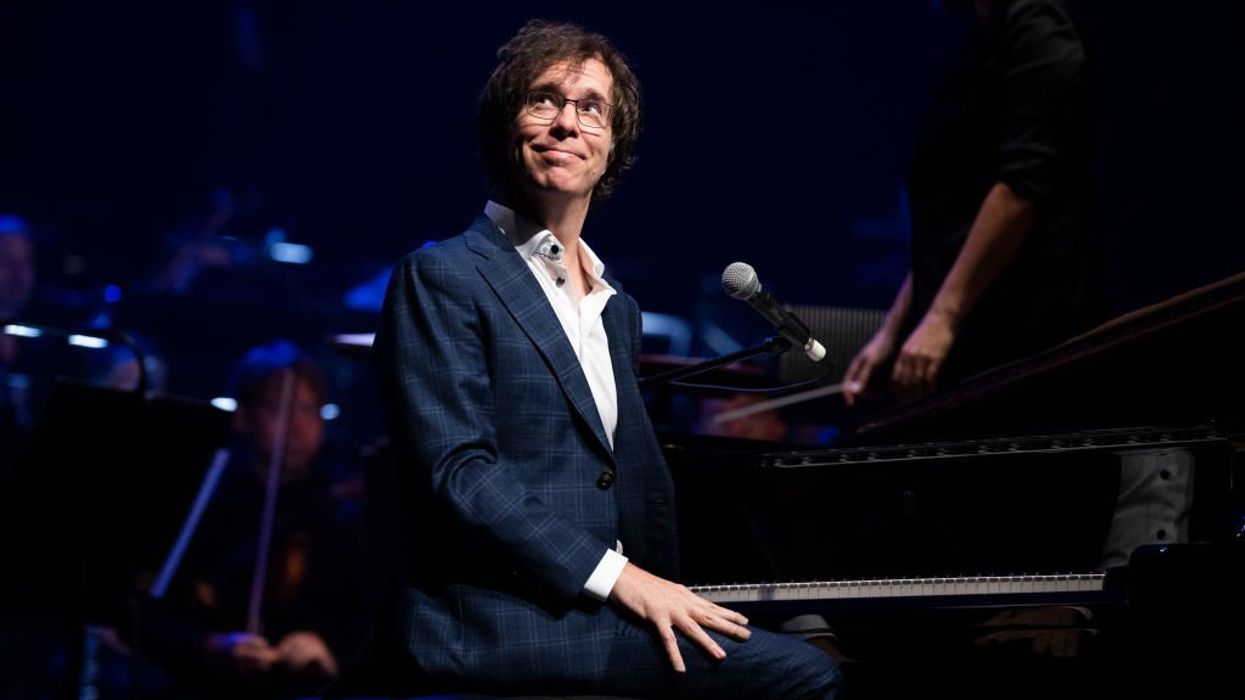In February, Ben Folds resigned as artistic adviser to the National Symphony Orchestra, shortly after President Donald Trump took charge of the John F. Kennedy Center for the Performing Arts. “Given developments at the Kennedy Center, effective today I am resigning as artistic advisor to the NSO,” Folds wrote on Instagram on February 12. “Not for me.”
While Folds is not overtly political, he has used his music as a platform to encourage dialogue and understanding within his audience. He has the opportunity to do so in his recently announced 2025 concert tour, which includes the “Paper Airplane Request Tour,” where members of the audience can request songs by sending paper airplanes to the stage.
However, given Folds' more subtle approach to societal and political issues, it is unlikely that his upcoming tour will be focused on politics since Folds has not overtly done so in the past. His most recent album “What Matters Most, ” released in June 2023, does touch on political and social themes but it isn’t his overall message. Instead, Folds chooses to explore themes of personal growth, human connection, and societal issues by blending humor, vulnerability, and poignant observations that encourage listeners to reflect on their own lives and the world around them.
And maybe during these divisive times in America that is exactly what is needed…some reflection on our own lives and the world around us.
A perfect example of Folds’ style can be seen in "But Wait, There's More,” a song that critiques the state of Western civilization and the influence of internet disinformation. Similarly, "Kristine from the 7th Grade," reflects on reconnecting with a former classmate who has become a conspiracy theorist, blending humor with concern.
While Folds certainly is not political by nature, his songs do tell a story of contemporary life in America and perhaps that is what we all need at this time in our history. His song, "The Ascent of Stan," reflects on generational shifts and the compromises of ideals, which can be interpreted by some as politically charged. While “Brick” tells a story of his high school girlfriend having to deal with an abortion, Folds has explicitly stated that the song is not a political statement but instead a song about the feelings surrounding that experience.
Regarding "Brick," Folds has explained that the song is a deeply personal narrative about a high school experience involving an abortion. He has said, "I didn't really want to write this song from any kind of political standpoint or make a statement. I just wanted to reflect what it feels like."
This highlights his intention to focus on the emotional weight of the experience, rather than any broader commentary on politics. Similarly, Folds’ hit "The Ascent of Stan” is a reflection on the irony of growing into the very things one might have rebelled against in their youth. The song critiques the transformation from idealistic rebellion to becoming part of the establishment, encapsulating themes of self-realization and societal change.
Historically, artists have often responded to societal tensions and political divides through their work, using creativity as a form of activism and commentary. If history is any judge of the future, as polarization continues to grow in our nation, more and more contemporary artists are likely to address the many contentious social and political issues that separate us as a nation.
Art has the power to provoke thought, inspire change, and bridge divides, making it a natural medium for engaging with political and social issues. The pop culture section of The Fulcrum will continue to explore the power of connecting the dots between pop culture and activating millions of Americans to create a functioning and healthy democracy.
In the words of the great jazz artist Wynton Marsalis, “Music heals people because music is vibration, and the proper vibration heals.” Music indeed brings people together and multiplies their energy.
David Nevins is co-publisher of The Fulcrum and co-founder and board chairman of the Bridge Alliance Education Fund.




















Trump & Hegseth gave Mark Kelly a huge 2028 gift